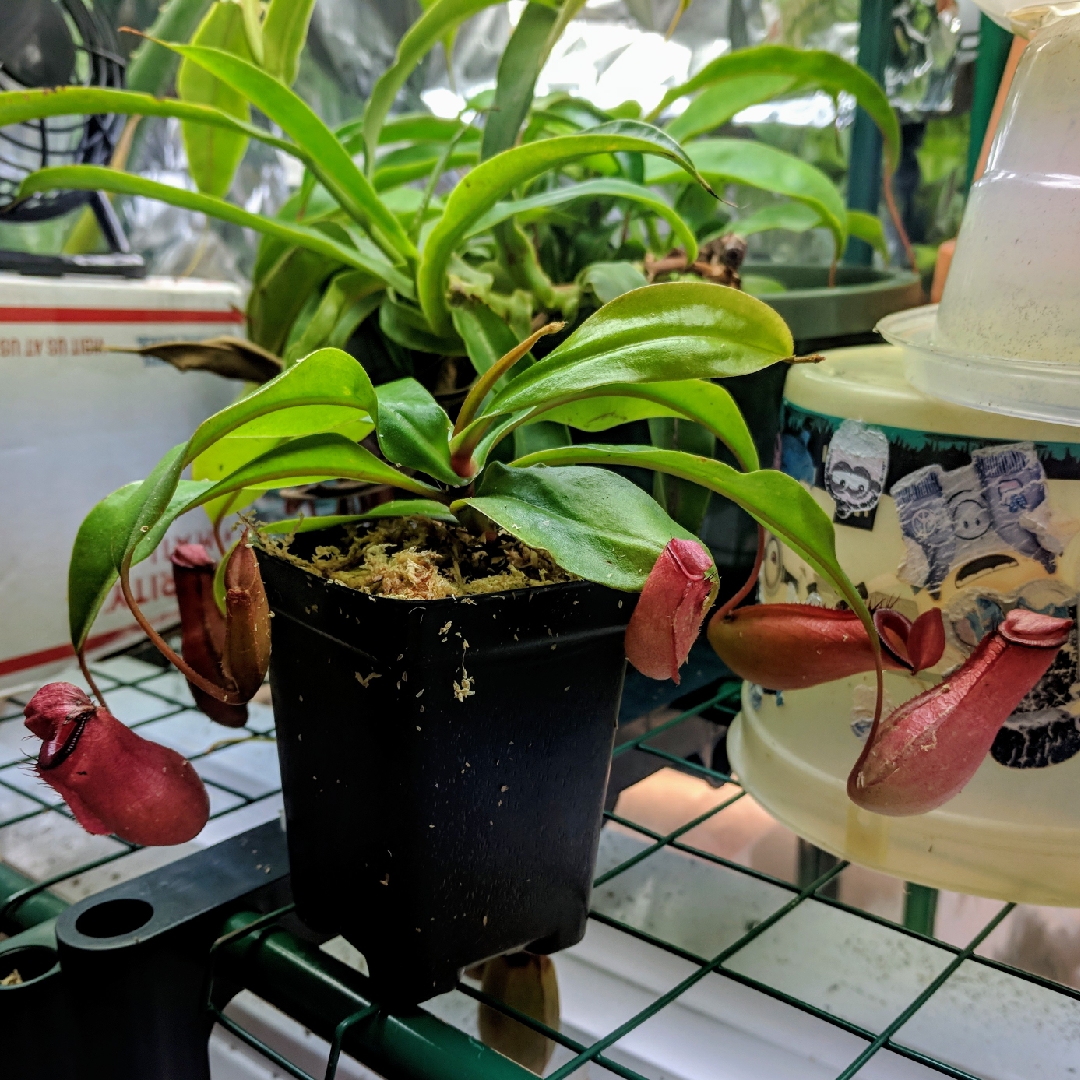
Nepenthes ventricosa x ampullaria 'Lady Luck'
Pitcher Plant 'Lady Luck'
Nepenthes is a genus of carnivorous plants which can be successfully cultivated in greenhouses. They should only be watered with rainwater, given plenty of bright light (though some species can grow in full sun), a well-drained medium, good air circulation and relatively high humidity. Nepenthes 'Lady Luck' is a hybrid of Nepenthes ampullaria and bears red pitchers
Contributed by @demeterstouch
-
Partial shade to deep shade
-
Occasional watering
-
Not Frost hardy
-
Rich and free draining
Common name
Pitcher Plant 'Lady Luck'
Latin name
Nepenthes ventricosa x ampullaria 'Lady Luck'
type
Carnivorous plant
family
Nepenthaceae
ph
5.0 - 7.0 Acid - Neutral
Plant & bloom calendar
-
Best time to plant
full grown dimensions
 0.50 M
1.00 M
0.50 M
1.00 M
Nepenthes ventricosa x ampullaria 'Lady Luck'
Nepenthes is a genus of carnivorous plants which can be successfully cultivated in greenhouses. They should only be watered with rainwater, given plenty of bright light (though some species can grow in full sun), a well-drained medium, good air circulation and relatively high humidity. Nepenthes 'Lady Luck' is a hybrid of Nepenthes ampullaria and bears red pitchers
Propogation
From Early Spring TO Early Spring
Plants can be propagated by seed, cuttings, and tissue culture. Seeds are usually sown on damp chopped Sphagnum moss, or on sterile plant tissue culture media once they have been properly disinfected.
Propogation by cuttings
From Early Spring TO Early Spring
Cuttings may be rooted in damp Sphagnum moss in a plastic bag or tank with high humidity and moderate light. They can begin to root in one to two months and start to form pitchers in about six months.
Planting young plants
From Early Spring TO Early Spring
Plant young plants in a 1:1 mixture of orchid medium with moss or perlite.












